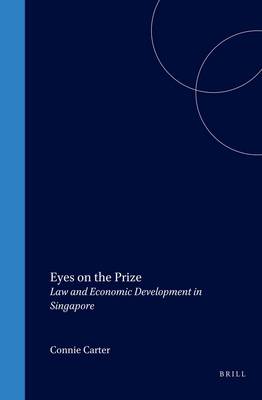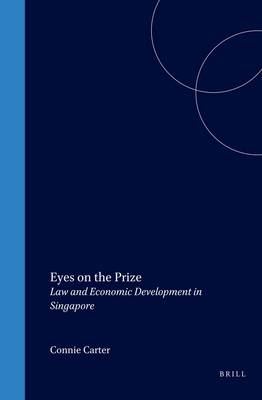
- Afhalen na 1 uur in een winkel met voorraad
- Gratis thuislevering in België vanaf € 30
- Ruim aanbod met 7 miljoen producten
- Afhalen na 1 uur in een winkel met voorraad
- Gratis thuislevering in België vanaf € 30
- Ruim aanbod met 7 miljoen producten
Zoeken
Omschrijving
Most law and development books focus on "what went wrong". Eyes on the Prize is an exception: it focuses on "what went right" in Singapore's transformation from squalid colony to successful growth-oriented, capitalist state. It questions the efficacy and nature of the role of law in the forty-year transformation, in the light of traditional and neo-traditional theories of law and development. It has not been the "rule of law" as such that has contributed to Singapore's development. Rather it has been law as the embodiment of "mature policy" of a goal-oriented, politically stable, educated, largely non-corrupt, communitarian and authoritarian state bureaucracy, which was grafted onto the remnants of the previous colonial administrative structures.
Dr Carter examines Singapore's economic development in relation to labour law, land law, and intellectual property law, testing these against key aspects of law and development theories. While analyses of the former challenge the law and development convergence theory, that of intellectual property law uncovers the transforming impact of global influences such as the WTO. As such, the book provides a novel and balanced account for the student of law and economic development.
Dr Carter examines Singapore's economic development in relation to labour law, land law, and intellectual property law, testing these against key aspects of law and development theories. While analyses of the former challenge the law and development convergence theory, that of intellectual property law uncovers the transforming impact of global influences such as the WTO. As such, the book provides a novel and balanced account for the student of law and economic development.
Specificaties
Betrokkenen
- Auteur(s):
- Uitgeverij:
Inhoud
- Aantal bladzijden:
- 328
- Taal:
- Engels
- Reeks:
- Reeksnummer:
- nr. 7
Eigenschappen
- Productcode (EAN):
- 9789041117281
- Verschijningsdatum:
- 1/11/2001
- Uitvoering:
- Hardcover
- Formaat:
- Genaaid
- Gewicht:
- 643 g

Alleen bij Standaard Boekhandel
+ 787 punten op je klantenkaart van Standaard Boekhandel
Beoordelingen
We publiceren alleen reviews die voldoen aan de voorwaarden voor reviews. Bekijk onze voorwaarden voor reviews.








